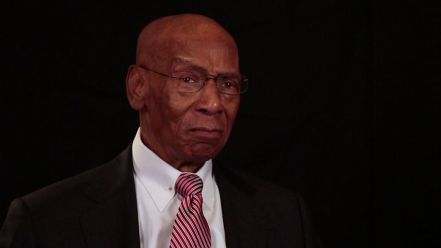Major League Baseball has lost one of the true greats. Ernie Banks, a hero to Chicago Cubs fans across the country and the first black player in the history of the franchise, passed away last week. He was 83.
For 19 seasons, Banks patrolled the friendly confines of Wrigley Field with an infectious enthusiasm and passion for the sport. Along the way, he earned the nickname “Mr. Cub” and smashed a franchise record 512 home runs.
After serving in Germany during the Korean War, Banks spent part of the 1953 season playing for the Kansas City Monarchs of the Negro American League. However, baseball’s color barrier was crumbling quickly, and the Cubs soon purchased his contract.
After getting his feet wet in 1954, Banks kicked off a string of amazing seasons. From 1955 through 1960, he averaged 41 home runs per year. He won the MVP award in 1958 and 1959 for this amazing stretch. In both of those seasons, he led the National League in RBIs; he also averaged 46 home runs per year over that span. As a power hitting-shortstop, he was something of an innovator of the position. At the time, middle infielders almost never hit more than 10 homers per season. Later on in his career, he moved to first base and began to lose his touch at the plate, but he still possessed impressive power during a time of declining home run totals.
Despite Banks’ strong performances on the field, the Cubs were generally horrible during his tenure. Indeed, he holds the all-time record for most games played without a postseason appearance. He could not do anything about the fact that the Cubs front office failed to ever give him anything resembling a competent supporting cast. Still, his enthusiasm for game never waned.
After retiring from baseball, Banks remained active, making appearances on behalf of the Cubs and establishing his Live Above & Beyond Foundation, which helps disadvantaged youths and elderly people. Over the years, he became an icon of Chicago and a true ambassador for his city, taking on the same special significance to fans as Derek Jeter or Mickey Mantle have to many New Yorkers.
Banks has left behind a considerable legacy. Experts laud him as one of the greatest shortstops in the history of the game; in fact, he was one of two shortstops to be named to the MLB’s All-Century Team in 1999. In 1977, he was elected to the National Baseball Hall of Fame. Advanced metrics back up the writers’ assessment of Banks. Among shortstops of the live-ball era, he ranks 10th in career Wins Above Replacement.
We can all learn something from Ernie Banks. His passion for baseball and undying hope that the Cubs would someday win a World Series are examples of how athletes should act on the field and how people should act in their everyday lives. With his death, our wonderful game has become a little less wonderful, but the mark that Banks left on the sport of baseball lives on.





